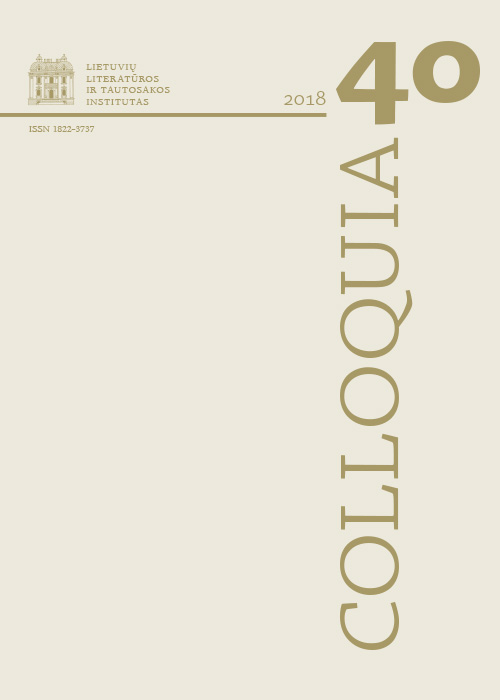Discourse Structure in Juozas Aputis’s Triptych of Short Stories The Green Bend of Time
Abstract
This paper discusses actor relations, time and space in Juozas Aputis’s triptych of short stories “Žalias laiko vingis“ (The Green Bend of Time, 1977). These three short stories are linked by the figure of the traveller-narrator.
The first short story, “Arklio akyse“ (In the Horse’s Eyes) contains several individual and collective anthropomorphic actors as well as two zoomorphic actors – a mare called Jūra (Sea) and a small dog. The story also contains clear configurations of closed and open spaces, and a distinct aspectualisation of inchoate, terminative and durative time.
In the second short story, “Troboj prie upės” (In a Hut by the River), the figurative paths of two actors – a traveller and a woman – are developed in parallel. The traveller becomes a listener to a dramatic lifetime confession and tries to solve the puzzle of the impossibility of coexistence between man and woman.
The object of value in the first story is lost time, while in the second it a wish to get rid of one’s burden. In the third story, “Žalias laiko vingis” (The Green Bend of Time), the adopted burden of somebody else’s life becomes the traveller’s object of value.
In the first story, space and time emerge in childhood memories; in the second one, the space of the homeland is replaced by an isolated hut and a railway; in the third one, the bend of time connects a traumatic war experience with mundane monotony, and the visibly present figures with their counterparts in the utopian space of childhood.
Downloads
Most read articles in this journal
- Kęstutis Nastopka, Literary Intertextuality of Tomas Venclova‘s Poetry , Colloquia: Vol. 42 (2019)




